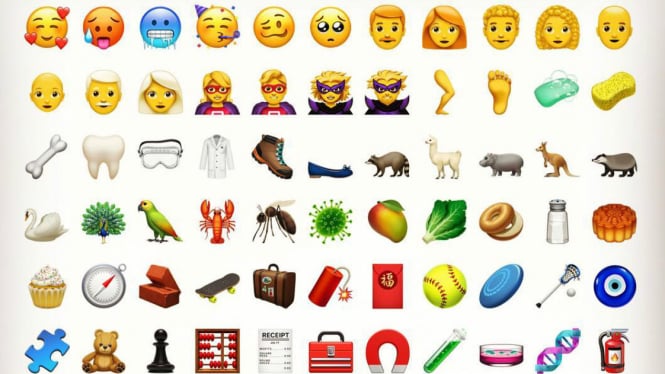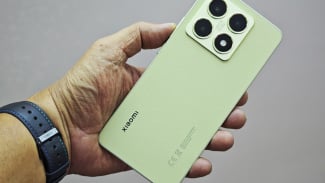Four Emojis are Banned in Several Countries Including Indonesia
- Instagram/@emojipedia
VIVA – The activity of sending messages using emoji is often done by people, ranging from children, teenagers, to the elderly. The use of emoji is considered fun in establishing communication.
By using emojis, people can describe the feelings you are experiencing, such as happy, sad, grateful or other feelings. Even though it's only useful for fun, there are some emojis that are considered impolite if they are still used.
Some of the countries below have even banned the use of these emojis because they mean bad things. For this reason, here’s a review of emojis that are prohibited in several countries including Indonesia.
1. Metal Hand Emoji
emoji
- U-Report
The use of metal hand emoji or horn emoji is prohibited for those living in Italy, Spain, Portugal, Greece, Argentina, Brazil, Cuba and Uruguay.
Because, if the symbol is addressed to a certain person who is in the country mentioned, it can mean that their partner has cheated on them.
2. Hand Waving Emoji
Emoji Lamabaian Tangan
- Tangkapan Layar: Instagram
China has its own meaning from this waving hand emoji. According to Emojipedia editor Jeremy Burge that waving does not mean friendly in some cultures.
"Waving emojis can be used in China as an offensive sign," Burge said.
When used on China's WeChat, this emoji can be translated into a sign that we are no longer friends.
3. Thumbs Up Emoji
Emoji Jempol
- Tangkapan Layar: Instagram
Thumbs up emoji is often used to compliment someone in an activity. For example, good work or an expression of agreement. But when it comes to Iran, Iraq, Afghanistan and Nigeria, it's not good.
Because, the emoji can mean you are cursing at that person.
4. Peace Emoji
Emoji Peace atau Perdamaian
- Tangkapan Layar: Instagram
Peace emoji or victory hand emoji is often used to signify peace or victory. It's different in England. If in that country the slang can mean 'get away from you'.
5. Gay Emoji
Emoji Gay
- Tangkapan Layar: Instagram
The rise of the LGBT phenomenon is currently also endemic to the world of technology, including emoji. The latest, there are pictures of two same-sex people also appear in the form of emojis on mobile phones.
This emoji, of course, has drawn controversy and has been banned by many countries in the world that do not legalize LGBT, including Indonesia.




































